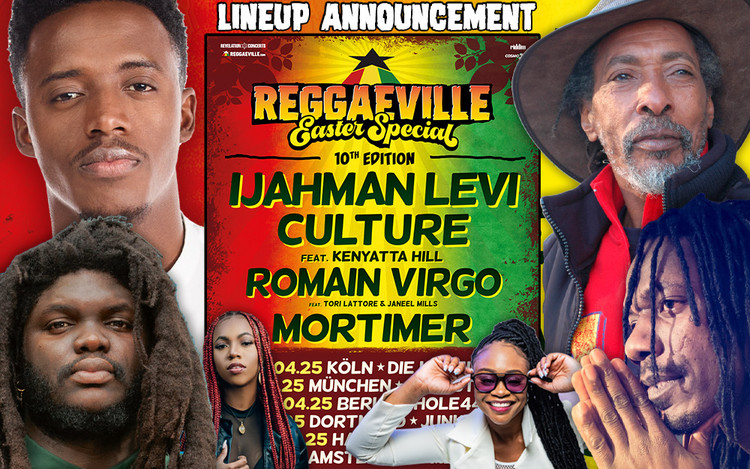Errol Brown ADD
Rebelution, Peace of Mind - Interview with Erich Rachmany
01/11/2012 by Justine Amadori Ketola
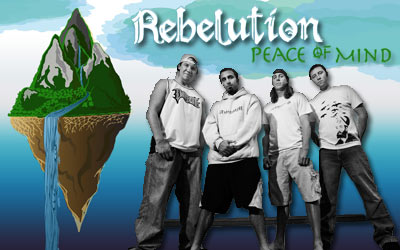
Rebelution, Peace of Mind, interview with Erich Rachmany
Rebelution celebrates their third album, a three disc opus, with acoustic versions, dubwise journeys and straight ahead vocal tracks that mix it up, bringing the noise - carrying the torch of rebel music to higher heights. The set of songs known as Peace of Mind, released this week [read the album review here]. The first single, "Sky Is the Limit" which has the band's first-ever video to accompany it that is in the editing stage now.
Forming in 2004 and starting with a college fan base in Santa Barbara, Rebelution's debut release Courage To Grow received heavy rotation first on Hawaiian radio with it's Jawaiian tendencies and then on key California rock stations which garnered the band massive downloads. Their 2009 release Bright Side of Life reached the #1 spot in reggae and the #3 position over all for top albums downloaded in the U.S. Maintaining a consistent interest in the experience and mission of the musician, I framed the discussion with Erich Rachmany from Rebelution on the varied aspects of the writing and recording process as it relates to their choices and direction as a band.
I have watched your trajectory from being a Santa Barbara band, to teaming up with Silverback for management. I was with you at Sierra Nevada World Music Festival the first time you played just a few years back and now in 2011 you headlined, what is it like for you to feel this buzz, this energy, this direct shot to the top of the charts?
It feels great because I love music so much. Music has always been my passion, and to be able to just make a living off of performing, recording and music altogether - it's just a great, wonderful, gratifying feeling, to be able to do this. On top of that, I feel like we have a generally really positive message in our songs, and I think it is really important for people to feel that positivity especially in this day and age.
Did the real boost happen from the Hawaii vibes, I understand you were distributed through CD Baby, you had a basic indie framework and it was just one song that blew up on Hawaiian radio and resulted in massive downloads.
When we first got started in a college town, in Santa Barbara, with the help of My Space and all of these other internet sites, people in Hawaii picked it up. It took one kid to send it to the radio station on the Big Island an all of a sudden the song "Safe and Sound" became this like summer hit song. Next thing you knew, even before people in LA and San Francisco knew about it, in Hawaii people were going crazy over this song. So we ended up going to Hawaii before we ended up traveling throughout the state of California playing shows. It was kind of weird.
Have you met the kid who gave the music to the radio station in Hawaii?
Actually that kid ended up starting his own band out of San Diego, they're called Through the Roots.
It is so interesting how you made it to the modern rock world after you hit Hawaiian radio which is commonplace for other reggae artists like in particular, Damian Marley with "Welcome to Jamrock". I know Marley Williams, your bass player has been raised on reggae, what about you what is your story? Were you a disappointment to your family or did they support your music career?
They have always been so supportive. My Mom has always encouraged me to play music. I am sure when I first started out, playing parties and stuff in college she just thought it was a side project, a hobby, but all of a sudden it started turning into this, thing where people kept on coming back. We had this big community of Rebelution fans and just in college. I told her ( Erich's Mom) that I was going to pursue this for a year and see where it takes me. But things just happened so quickly and she was always supportive, my whole family has been. They are just happy to share it with me and they like the music that we do so they are excited.
I grew up in San Francisco. I grew up listening to a lot of world music. My Mom and Dad were both dancers. I am not much of a dancer but I got the music. I love Middle Eastern music, music from all over the world. I switched from piano to guitar at the age of 13, acoustic music, I was doing a lot of singer songwriter type stuff. Once I went to a Don Carlos in the East Bay and then I really got into reggae music, and I went down to college (at UC Santa Barbara), they were into reggae. Except for our drummer Wes, he was into some more progressive rock and we got him into reggae and into playing reggae. All of us listen to different types of music. This new album we are coming out with is really an accumulation of our influence and stuff we have been listening to over the years. 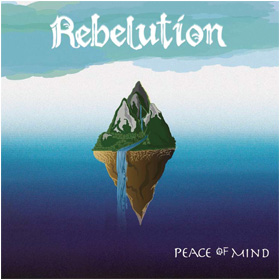 "Sky Is the Limit" is the first single on the Peace of Mind album. The note of optimism in your storytelling is always there in the lyrics. Do you and the band consider yourselves leaders in teaching the people to turn negative into positive? Who is it that you are addressing in this song when you say, 'look at the success we have made over the last seven years' in the lyrics.
"Sky Is the Limit" is the first single on the Peace of Mind album. The note of optimism in your storytelling is always there in the lyrics. Do you and the band consider yourselves leaders in teaching the people to turn negative into positive? Who is it that you are addressing in this song when you say, 'look at the success we have made over the last seven years' in the lyrics.
It is sort of a journey we are on with the band. You know we did experience some comments here and there that we're not playing true reggae, and that we're a disgrace to the scene. I mean there wasn't a lot of that kind of stuff, but every once in a while, you get a comment like that and this song is kind of a way to say, 'I am not going to let any of those comments get me down.' For us we are playing music that we love, and we feel like we are making a positive impact you know, skies the limit for us. Keep on doing what we're doing, not let any negativity get to our heart and soul. But you know the song is not necessarily just about us, it is about everybody. If anybody experiences hateful comments, you know to sort of block that out and find your peace of mind, and continue. And that song is what that song is really about.
The other song that feels like a lot of what our conversation is centered around is the song "Meant to Be" the combo with Jacob Hemphill (from SOJA) that revisits all the trials and tribulations of what really is rock and roll life, life as a musician for both of you. Are you and Jacob friends? Did you collaborate on this as bros, or how did this come about?
Yes, we have known about them (SOJA) since they were a band. We have played some shows together, and we have become friends. I had this song that was about starting over and getting a fresh start to things. Take New Year's for example, I always love new years because I have the new year ahead of me and I can get a fresh start. If I want to eat better, talk to somebody more….. You know I am not a religious person, but one thing I like about the Jewish holiday of new year's and Yom Kippur is that you have the opportunity to repent and to start anew and you know get all that good stuff. And so I really feel its a breath of fresh air you know, when it comes time for the new year. So that's what the song is about it's about making up a plan again, and you know feeling positive about the future and I told Jacob about it and he's like,' I would love to be on this track with you.' And he literally called me back in 10 minutes and he had a verse and he had a chorus, and I was like 'wow, cool how that worked.'
For "Life on the Line" it really has a Middle Eastern flair, a guitar sound, you have obviously studied this style of guitar, I listened to it and thought it was almost an "Arab Spring" feeling song.
Basically, it was my idea to have some Middle Eastern instruments on the song, the melody on the guitar, was recorded on guitar first. And it had always had this feeling about it, and then Michael Goldwasser (of Easy Star Dub All-Stars) said he wanted to produce that song, and he said, 'I have this idea to put Middle Eastern instruments on it' and that was the exact same thing that I thought. So he found some people when he was traveling abroad in Israel to play the parts on I think it was bouzouki and oud. It was really cool that we both had the same inclination to put the sound on it, and that is how it evolved.
The combination with Lutan Fyah, How did this come about for the song "Good Vibes" ? The song addresses racism. Do you experience racism as a reggae band, or from those of a different race? What was the motivation to make this song and also to do it with Lutan.
We work with this producer named Yeti who works with a lot of Jamaican artists you know he had him lay a verse on the song, we don't actually know Lutan Fyah too well, just kind of indirectly. But as far as the song, it is about racism and stereotypes. You know I have kind of experienced that you know being stereotyped in a way, because my background is Persian, my family we are Persian Jews, so I mean as a minority in this country you know, I feel it. I am sensitive but, so the song is about embracing culture really, and that is kind of my experience with music you know because I love music from all over the world. And I think if people heard music from all over the world, they would have a better sense of who we are as people and where we come from. Our culture in general….as far as being a reggae group, a non-Jamaican reggae group, reggae is so global now and the music has really touched the heart and soul of the people all over the world and in our opinion, you shouldn't have to be a certain color to play any music really. I mean I can if I want to talk about the black Rastafari movement, but I didn't grow up in that environment, and I can't really relate to that very much, personally. I understand the story, it is amazing to me. I know a lot about it because I am really interested in it. But you know, I am talking about things that are more personal to me and my experience in life and what I see, my surroundings.
That is what conscious reggae is I think that is what it is really about, why it makes reggae unique, because it ties together, true heart feelings from people that all different cultures can relate to, I think that is why Bob was so powerful and still is.
Exactly, that is what the song is about, it is about embracing culture and people from all sorts of skin colors, and I think a lot of people agree with me. That song was actually a really fun song to write because it is upbeat, and has a positive message for people to step back and start embracing culture more.
And what about John Popper of Blues Traveler on "Closer I Get", did you co-write this song or how did the recording process come about for that?
We recorded it down at Yeti's studio in LA, over you know, a break beat and we had met John Popper on the road, played one show with him, he said 'I'd love to be on any song with you in the future.' And had our manager get in touch with him and had such a unique sound with his harmonicas, that it worked out really well.
Apparently this is the first time you have used outside producers?
Right, we had these four - five producers on the album. Just to get their interpretation of the our music, and kind of see where it takes us. I tell people, 'When I write a song and then I show the band members, it ends up being this totally different song in the end, you get everybody's two cents.' And the same thing with a producer, they show you their interpretation. So that was really cool and we have the ultimate say in it, we tell them what we want, what we don't like. That is the greatest part about having our own label and having an independent band, not letting anyone take you in a direction you don't want to go.
Which songs did Errol Brown produce, and where did those get done?
He does our sound sometimes, he obviously does sound for all of the Marleys. And he decided to take a chance on this one band and now he loves touring with Rebelution. We ask him all sorts of stories. They are fun because I am like, 'Yo Errol, did you do this Gregory Isaacs album?' And he is like, 'Oh yeah, I did like five of his albums' And literally every song that I have listened to, has been recorded by Errol Brown in Jamaica.
He is a really a fixture, so unbelievable. Their industry there is so different than here. It is the hit factory, they release more singles per capita than anywhere in the world. Have you been to Jamaica to record or taken any trips there?
I haven't, but you know Errol Brown has invited us to come down and definitely have to do it soon. I have listened to a lot of music coming out of Jamaica, for years and years.
You would be a sensation down there. There are plenty of bands that are inspired by what you have done. I believe that the resurgence of the bands in the scene in Jamaica, has a lot to do with your work. I think that they have seen things come full circle. You should definitely take a trip down.
If what you said is true, that would be an amazing feeling for us, because there are a lot of solo artists coming out of Jamaica which some of which I admire very, very much. But if we could influence more people to start the bands coming out of Jamaica, that would be an amazing thing for us. Because we have grown up listening to all of that music.
Errol Brown ended up doing the song, "So High" which is an herb song, he reached out to us and was like: ' You know I would love to do a song, this one would be my favorite.' You actually can tell that Errol Brown mixed that song because the bass is so heavy, and it has a very Jamaican mix.
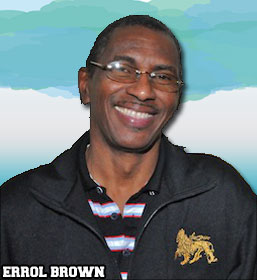 Reggaeville connected with the great engineer Errol Brown to get his comments on the song and his work with Rebelution.
Reggaeville connected with the great engineer Errol Brown to get his comments on the song and his work with Rebelution.
Errol Brown: They have to work around my schedule, because Ziggy is the main person I work with. I recorded the (Peace of Mind) album in Santa Barbara, and it was mixed by them. When I toured with them and listened to the mixes, I decided to remix one of the songs. I chose, "So High" as it was one of my favorite songs, because I like the dub sound. Rebelution, their music is mixed straight, without effects, but with Eric's voice, and the dub sound, I just took "So High" and mixed it how I would do it live. What I don't like about a lot of these records out here now is that, you do it live, you mix the sound.. So anything I am doing in the studio, I always try to have a full sound. I just did the sound the way I would do it live.
There are two versions of the song, one with I-Wayne, and one with Zumbi from Zion-I.
Errol Brown: I did a TV track for it (without vocals) and that would be what they added to. Rebelution is one of my favorite groups, I am sorry I could not be their main engineer.
An I-Wayne version of the song is featured on his current album. I-Wayne let us know in another recent interview that VP came to him with the song idea.
It was cool that VP tried to connect us. I have listened to I-Wayne for years too. Actually we used to cover I-Wayne. It is hard to believe he has been around since 2003 at least, 2004 maybe. We used to cover "Can't Satisfy Her", we didn't really know what we were doing, being in a band in a college town. But that was the kind of music we listened to, and now it has kind of come full circle. We are on tracks with I-Wayne and Lutan Fyah on our album.
On songs like "Route Around", "Lady in White", "Closer I Get", "Day By Day", you address romantic topics, do you consider yourself attached or a hopeless romantic, or single or "it's complicated"?
I have a special companion that is an inspiration to me.
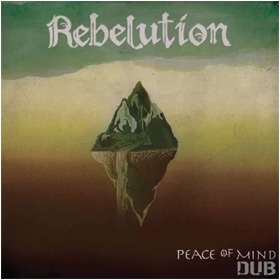 In general on this album, you are taking a different direction, incorporating remixes and adding a sound that has a rock edge, what type of collaboration and process do you go through as a band to determine what a song should ultimately be shaped like, whether straight reggae in its structure or more traditional rock? How did you make this 3 CD concept come together? Do you have a rehearsal space or time in your schedule where you plan things out as a band?
In general on this album, you are taking a different direction, incorporating remixes and adding a sound that has a rock edge, what type of collaboration and process do you go through as a band to determine what a song should ultimately be shaped like, whether straight reggae in its structure or more traditional rock? How did you make this 3 CD concept come together? Do you have a rehearsal space or time in your schedule where you plan things out as a band?
We have been touring so much that we don't practice as a band, we don't practice very often, we end up practicing on the road in sound checks. A lot of the time I will come up with the idea and be like 'Hey guys, check out this rhythm, these lyrics that I wrote.' The band will kind of manipulate it by changing the baseline a little bit or adding a chord here or there. Our drummer Wes, none of us play drums so it is kind of up to him to make up his own part to be the rhythm with the drum ability. I am not a fast songwriter, I write songs very slowly. I don't have a booklet of a thousand songs ready to go for the next album. I write them kind of one by one, so they are kind of shaped as I go with the songwriting. I guess I always want to do something that has not been done before, reggae music, I feel like you can really manipulate it in very special ways. You can write a pop reggae song, you can write a rootsy reggae song, you can write a jazzy reggae song, you can write a bluesy one. You could write a hip-hop or rock song. That is kind of what we did with this album, we really wanted to kind of explore those different types of music while still maintaining that reggae sound…still having that reggae foundation. I think that is kind of what sets us apart from the other reggae bands out there. You know, because we listen to all these different types of music, we strive to explore these different genres, while still holding that reggae sound. So it has been really fun to try to write these different songs on the album that have more than a Motown, R&B feel than we have done on previous albums.
The other thing is that lyrically I have to put myself in someone else's shoes on this album, I don't really enjoy talking about myself too much, I don't really want to write it in first person, so I didn't, I put myself in someone else's shoes. So it is like writing on their behalf. That was really fun for me to do, and a way to take attention off myself. It is rather ironic that I am the singer in a band, because I hate being the center of attention, but you know this is a way to kind of get out of that, really imagine myself as somebody else and explore that in a songwriting concept.
Do you use a specific studio? Controlled Substance is the Silverback management entity you are partnered with, and you maintain your label independence through their 360 deal structure and your label, 87 Music was founded around the second album, Bright Side of Life.
We use a studio in Santa Barbara called, Santa Barbara Sound Design, they are a little bit down the road from us. Right, the first was Courage to Grow on 87 Music, exactly what you said. Controlled Substance Sound Labs, helped us start 87 Music and we kind of have a 50/50 deal, to put out future projects.
What advice can you give to those starting out to get on this type of trajectory? How do you make group decisions that affect these download offers, all of these innovative ideas like with a purchase of a ticket you get free download for the album?
We started very organically, we started just as a college band. My advice is to, there is no one right way to do this, but if I were to give somebody advice, I would say first of all you have to have a sound. You have to have music that people enjoy. That is the first thing, the second thing is that if you want to get heard, you need to, tour a bunch, you need to play as many shows as possible. And the shows that you do play should preferable be in places where there are younger kids because those are the kids that are actually eager to spread music and eager to see music and are looking for things. So I suggest colleges, that is where we got started and when people dug our sound, they would tell their friends at other colleges, and they would tell their friends and it would spread in dorm rooms. People will often go to LA to try and make it in the business, and we say, 'no don't do that you should start on a small scale and make your way north.
That would be my advice, you know relentless touring is what we did. After we all graduated from Santa Barbara, we hit the road, and played for $200 a night, toured in an RV, we just hustled you know.
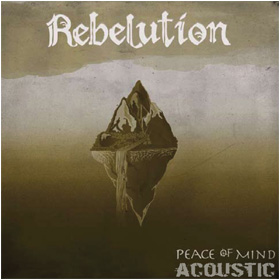 What is on the pre-tour sampler? What would the devoted fan base that you are developing get like this, such a great way to get them in the conversation, like you say, spreading things around. What are you giving away is it unreleased tracks, when someone buys a ticket what do they get?
What is on the pre-tour sampler? What would the devoted fan base that you are developing get like this, such a great way to get them in the conversation, like you say, spreading things around. What are you giving away is it unreleased tracks, when someone buys a ticket what do they get?
They basically get a few songs off of album, they get the acoustic and dub versions, and they also get the music from the acts that we tour with. So its kind of to let people know what they are in store for when they are going to come to the show, and maybe give them some songs that they are looking forward to. But we also want to give them a song that, hasn't been released to the rest of the public, kind of as a thank you for supporting our band. That's the way we make our living really, is by touring, you know. CD sales are not as strong these days. There are a lot of digital sales, but a lot of people just get their music by downloading for free. Which is ok with me, I think it kind of depends on where the band is. At least for me if I download a song for free I find another way to support the band. There are people that want to buy it on I-tunes, that is like a donation to the band. I think we can just keep on doing what we are doing, that's kind of how we have done everything. Any money we have received we have put back in the band to record and to travel, you know. We have been to South America, and overseas to try and keep on spreading our message and continuing as a band.
What do you California, healthy people do to stay fit, From the bus ride to the venue, to the hotel the grind, day in and day out on the tour, what do you do to stay healthy both mentally and physically?
It is all mental really, that is why we named this album, Peace of Mind is because you need to find that one spot mentally to continue to do as what we do as artists. It is all about eating to stay fit, stay healthy, to be mentally there. And the greatest part is to be with such a wonderful group of guys that are supportive, both the crew and the band members. We aren't just musicians, we are also friends. We have lived together for the past several years.
What's next? Your fans are calling for a live album. I am sure you want to garner some awards and get your foothold in for the long term. What are you and the band thinking of for this year and for beyond 2012?
We would like to go on this tour celebrate and enjoy this new album, amongst the fans and us and the connection we have with each other. And then after that we will probably either go to South America and head to Brazil again. Or we may go to Hawaii or we may take the time off or we may work on new material. We don't really have that much planned as of right now. But we do have a music video coming out soon for "Sky's the Limit" - we've never done anything like that before. But we'll give it a try.
Where was the video shot?
We just did it in Santa Barbara, over a couple of days, went out into the hills, into the mountains. Went back to Isla Vista (the beautiful peninsula where the University of California Santa Barbara campus is situated) to explore where we got started. Not too much was planned, we wanted to have fun with it.
Rebelution is on tour now in the U.S. in celebration of their third album Peace of Mind. ALL DATES HERE




